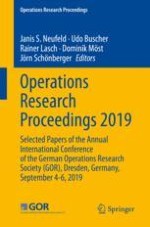2020 | OriginalPaper | Chapter
Tax Avoidance and Social Control
Authors : Markus Diller, Johannes Lorenz, David Meier
Published in: Operations Research Proceedings 2019
Publisher: Springer International Publishing
Activate our intelligent search to find suitable subject content or patents.
Select sections of text to find matching patents with Artificial Intelligence. powered by
Select sections of text to find additional relevant content using AI-assisted search. powered by
